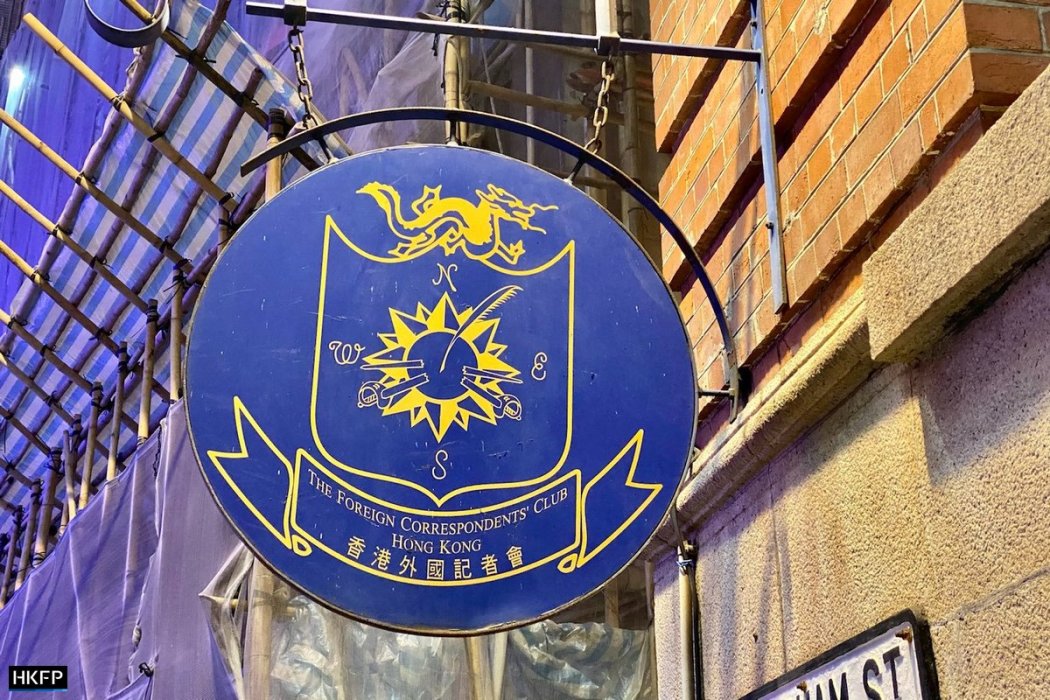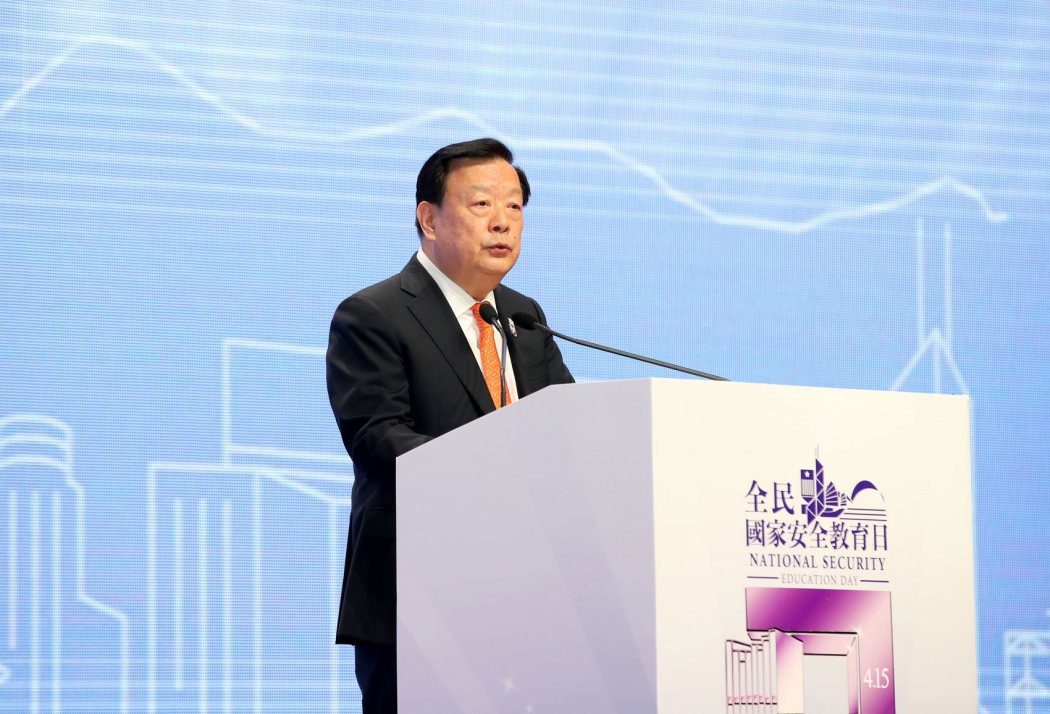Hong Kong’s Foreign Correspondents’ Club (FCC) has raised concerns after the government inexplicably barred several media outlets from a National Security Education Day event on April 15. It is the first statement from the club on local press freedom matters in eight months.

“Media outlets being barred from covering public events raises concerns over the future of press freedom in Hong Kong, which is guaranteed under Article 27 of the Basic Law,” the club said in a Monday press release ahead of its annual general meeting that evening.
Several mainstream and digital outlets, including HKFP and a wire service, were rejected from attending an opening ceremony for the city’s National Security Education Day at the Convention and Exhibition Centre, officiated by top Chinese official Xia Baolong. Xia was on an inspection visit as the director of the Hong Kong and Macao Affairs Office of the State Council.
The Information Services Department ignored several emails and evaded questions by phone when challenged by HKFP as to why. HKFP’s Code on Access to Information requesting details was rejected, though the government watchdog has agreed to investigate.

The Club said it had written to the ISD to request a meeting and would monitor the Ombudsman complaint.
“The FCC also notes that the event in April was held with the aim of enhancing the public’s understanding of the importance of national security to Hong Kong’s long-term prosperity and stability. The barring of certain registered media outlets is further perplexing given the stated objectives of the events of that day, as well as the guarantee of freedom of the press under Article 4 of the National Security Law,” the statement continued.
FCC under fire
The FCC’s six-week delay in issuing Monday’s statement was unclear. However, its website states: “The responsibility for drafting such statements lies with the Press Freedom Committee; the final say on whether a statement should be published lies with the club’s board of governors.”
“If a majority of the board raises concerns about the legal risk of issuing a statement, the board of governors will seek advice from practising lawyers experienced in giving legal advice to international media. When such legal advice is sought, it will be shared with the board in writing.”
In 2018, a representative from the Chinese Ministry of Foreign Affairs in Hong Kong attempted to block Hong Kong pro-independence activist Andy Chan from speaking at a panel event at the club. Victor Mallet, the former Asia editor of the Financial Times and ex-vice-president of the club who hosted the talk with Chan was later barred from entering the city, weeks after the government refused to renew his work visa.
Last year, the FCC cancelled the Human Right Press Awards after hosting it for 25 years, citing legal risks. Eight members of the club’s Press Freedom Committee, which oversaw the awards, and one of the club’s board members resigned in protest, and Richburg later apologised to the awards’ judges, saying that the club still had “a role to play.”
The government also added a new national security clause to the club’s lease when it was renewed last year, saying “standard clauses” had been introduced “to safeguard national security and to sufficiently protect the Government’s rights and interests.”

The foreign press club is open to foreign correspondents and locally-based journalists, as well as those who are not employed in the media. It counts bankers, lawyers, and teachers among its members, according to its website.
Responding to an enquiry from HKFP last week, its new president Lee Williamson said that he had not run for the leadership role because he wanted to “run a bar and restaurant.”
“It’s written right there above the door: we are the Foreign Correspondents’ Club. The FCC has an important role to play in contributing to the plurality of Hong Kong life,” he said.
Hong Kong has plummeted in international press freedom indices since the onset of the security law. Watchdogs cite the arrest of journalists, raids on newsrooms and the closure of around 10 media outlets including Apple Daily, Stand News and Citizen News. Over 1,000 journalists have lost their jobs, whilst many have emigrated. Meanwhile, the city’s government-funded broadcaster RTHK has adopted new editorial guidelines, purged its archives and axed news and satirical shows.
See also: Explainer: Hong Kong’s press freedom under the national security law
In 2022, Chief Executive John Lee said press freedom was “in the pocket” of Hongkongers but “nobody is above the law.” Although he has told the press to “tell a good Hong Kong story,” government departments have been reluctant to respond to story pitches.
Support HKFP | Policies & Ethics | Error/typo? | Contact Us | Newsletter | Transparency & Annual Report | Apps
Help safeguard press freedom & keep HKFP free for all readers by supporting our team

LATEST FROM HKFP
HKFP has an impartial stance, transparent funding, and balanced coverage guided by an Ethics Code and Corrections Policy.
Support press freedom & help us surpass 1,000 monthly Patrons: 100% independent, governed by an ethics code & not-for-profit.










